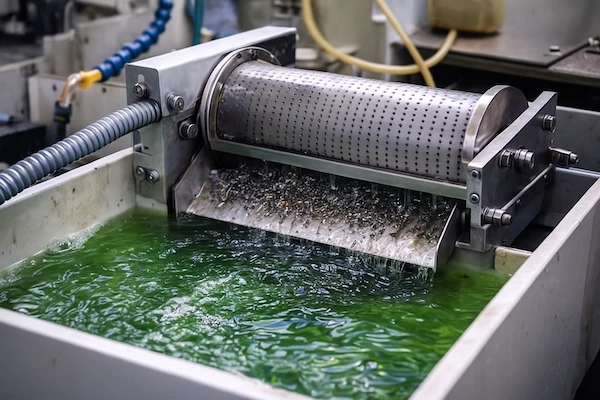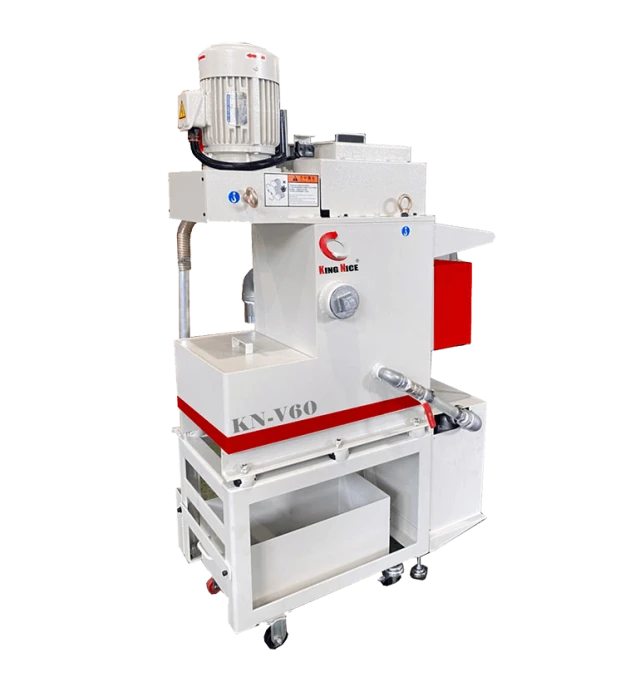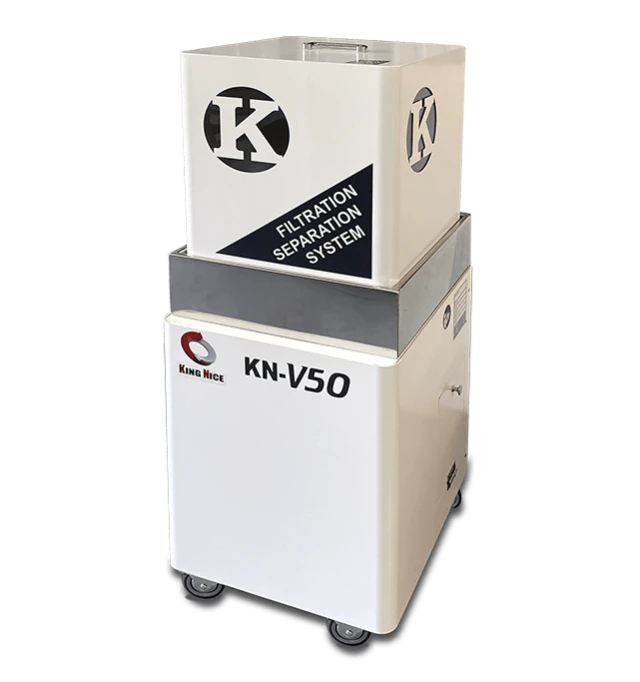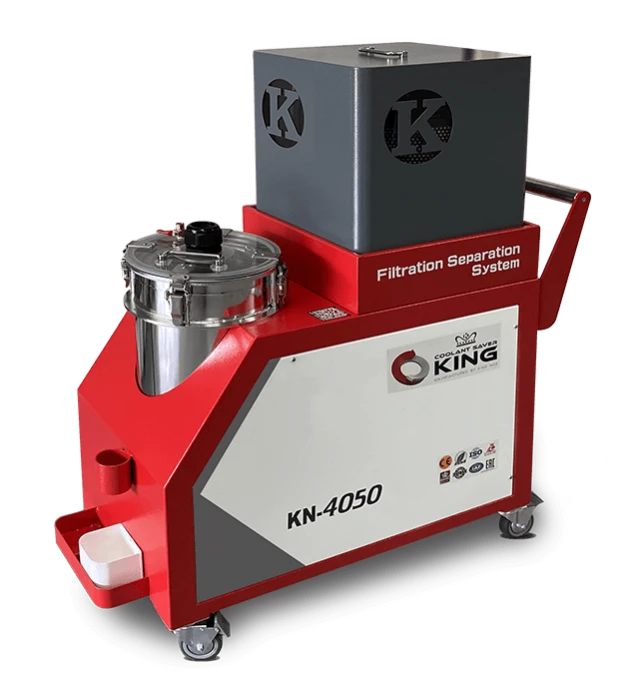How to Remove Metal Fines from Machine Coolant: Root Causes, Risks, and Proven Industrial Filtration Solutions

Metal fines are one of the most common yet most overlooked sources of coolant contamination in CNC machining environments. If these microscopic particles remain in circulation, they can severely impact machining quality, accelerate tool wear, corrode the coolant system, and eventually cause unpleasant coolant odor.
This AEO-optimized guide explains:
- Where metal fines come from and how they form
- The five major risks of leaving them untreated
- Real industrial methods for removing metal fines from coolant
- Recommended KingNice equipment for each type of coolant problem
What Are Metal Fines in Machine Coolant and Why Do They Matter?
Metal fines are microscopic chips generated during milling, turning, drilling, and grinding. Once they enter the coolant circulation system, they tend to:
- Accumulate at the bottom of the coolant sump
- Combine with tramp oil to create sticky sludge
- Become a breeding ground for bacteria and microorganisms
This is why proper filtration and tramp oil separation are essential for stable machining operations.
The Five Major Problems Caused by Metal Fines
1. Accelerated Tool Wear and Shorter Tool Life
Unfiltered metal fines act as abrasive particles inside the coolant, damaging cutting edges and causing premature tool failure. Without an effective oil–water separation system or coolant filtration unit, tool wear increases significantly.
2. Sludge Buildup and Bacterial Growth
When metal fines mix with floating oil, they form thick sludge that accelerates coolant degradation and contributes to foul odors. A sludge and chip removal system is required to prevent this buildup.
3. Corrosion Inside the Coolant System
Moisture-laden fines can corrode pumps, pipes, and valves over time. An efficient coolant filtration system helps minimize this risk.
4. Reduced Cooling and Lubricating Performance
Contaminated coolant loses its ability to cool and lubricate effectively, leading to poor surface finish, unstable machining accuracy, and lower productivity.
5. Airborne Metal Fines and Operator Health Risks
During high-speed machining, ultra-fine particles can become airborne, posing respiratory risks to operators. A chip and sludge extraction system helps maintain a cleaner working environment.
Why Do Metal Fines Accumulate in Coolant?
Common Sources of Metal Fines in Coolant
- Machining by-products: Naturally produced during cutting, milling, turning, and grinding.
- Insufficient filtration: Outdated or undersized filtration systems allow fines to remain in circulation.
- System corrosion: Rust and oxidation release additional metal particles.
- Tramp oil contamination: Leaked lubricants bind with fines and form sludge.
- Poor water quality: Hard water and impurities accelerate corrosion and particle formation.
How to Remove Metal Fines from Coolant (Proven Industrial Methods)
1. Multi-stage Coolant Filtration
Combining mechanical, magnetic, and centrifugal filtration removes particles down to sub-micron size, ensuring long-term coolant clarity. See: KingNice Filtration Systems.
2. Regular Sump Cleaning and Coolant Replacement
Using a sludge vacuum or chip removal machine prevents buildup and helps extend coolant service life.
3. Tramp Oil Control
Installing an oil–water separator removes floating oil before it mixes with fines.
4. Chemical Stability and Coolant Concentration Control
Improper mixing ratios or incorrect pH levels accelerate bacteria growth and corrosion.
5. Air Quality Improvement
Using chip extraction equipment helps reduce airborne particles and improves shop safety.
KingNice Industrial Solutions
KN-S Tramp Oil Removal System
Actively removes floating oil from the coolant surface and prevents anaerobic bacterial growth.
Learn more about the KN-S Series
KN-PLUS Heavy-Duty Oil–Water Separation
Designed for environments with severe oil contamination and heavy-duty machining.
Learn more about the KN-PLUS Series
KN-V200 / KN-V300 Sludge & Chip Removal Series
Removes bottom sludge and metal chips without stopping production.
Explore the KN-V Series
KN-4050 / KN-A50 Ultra-Fine Coolant Filtration
Ideal for high-precision machining, moldmaking, and medical-grade component manufacturing.
Learn more about KN-A50 / KN-4050
Quick Selection Guide
- Floating oil on coolant surface: KN-S, KN-PLUS — CNC machining, automotive parts
- Coolant odor or bacteria: KN-S1 — Aerospace, tooling, electronics
- Sludge or metal fines buildup: KN-V200, KN-V300 — General machining, electroplating, casting
- Unstable coolant quality: KN-4050, KN-A50 — Precision machining, medical components
Conclusion: Cleaner Coolant Starts with Proper Filtration and Separation
Instead of relying on deodorizing chemicals or frequent coolant changes, the most effective long-term approach is to control tramp oil, remove sludge, and maintain stable coolant chemistry. KingNice systems have proven to:
- Significantly reduce coolant odor
- Extend coolant service life by 2–3 times
- Lower maintenance costs and improve machining stability
Looking for the right oil–water separation or coolant filtration solution for your CNC machines?
Contact the KingNice technical team.
Updated: 2025-11-27


